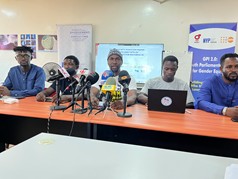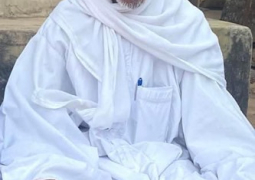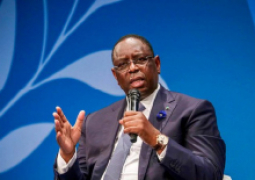
Essa Sowe, programme officer at WAVE The Gambia, in his statement stated that nearly ten years after The Gambia’s democratic transition, hopes for a reformed, professional, and rights-respecting security sector remain unfulfilled. The Security Sector Reform (SSR) process once hailed as a cornerstone of post-Jammeh transition has been dogged by political hesitation, weak institutional commitment, and recurring abuses by law enforcement agencies.
Sanneh added that the 13-member civil society working group on transparency and accountability, in its new position paper, expressed deep concern over the “unfortunate and recurring incidents” of police brutality against civilians, which it says demonstrate the failure of the SSR agenda to deliver meaningful change.
“Revitalising The Gambia’s SSR requires renewed political courage, transparent leadership, and inclusive engagement of citizens and civil society,” the coalition stated. “Reform must go beyond policy drafting to real, measurable actions that ensure accountability and human rights compliance,” he stated.
The CSOs stated in the position paper that the reform process, launched in 2017 with international support, aimed to rebuild trust between citizens and security institutions, dismantle authoritarian structures and professionalise the armed and security services. However, despite significant funding and well-drafted policy frameworks like the National Security Policy (NSP) and the Security Sector Reform Strategy (SSRS), progress has remained “slow and fragmented”.
According to the coalition, entrenched institutional resistance, political interference, and lack of coordination have undermined progress. “The gap between rhetoric and action has eroded public confidence and threatens to roll back The Gambia’s democratic gains,” the paper observed.
Citing the 2025 National Human Rights Commission (NHRC) monitoring report, the CSOs revealed that out of 263 accepted recommendations from the Truth, Reconciliation and Reparations Commission (TRRC), only 60 have been fully implemented with limited progress on police reform. Instances of police violence during peaceful assemblies and community patrols continue to surface, the group noted, highlighting recent cases including that of journalist Khadijah Bokum and the killing of Omar Badjie in Mandinari.
“The police’s repeated use of unnecessary and excessive force often with teargas and physical assault shows that lessons from the past have not been learned,” the statement added.
The working group has therefore urged the government to act decisively by implementing the TRRC’s recommendations and introducing stronger accountability systems. Among their proposals are the creation of an Independent Civilian Oversight Body for Police Accountability, merit-based appointments of the Inspector General of Police, mandatory human rights and de-escalation training, and the integration of body-worn cameras for patrol officers.
The paper also calls for the establishment of community policing units and the adoption of technology-driven oversight mechanisms to rebuild trust between law enforcement and the public.
“Transforming The Gambia’s security sector is not just a policy issue. It’s a national imperative.” the CSOs emphasised. “Without urgent reforms, the credibility of the security institutions will continue to decline, undermining peace, democracy, and human rights.”





